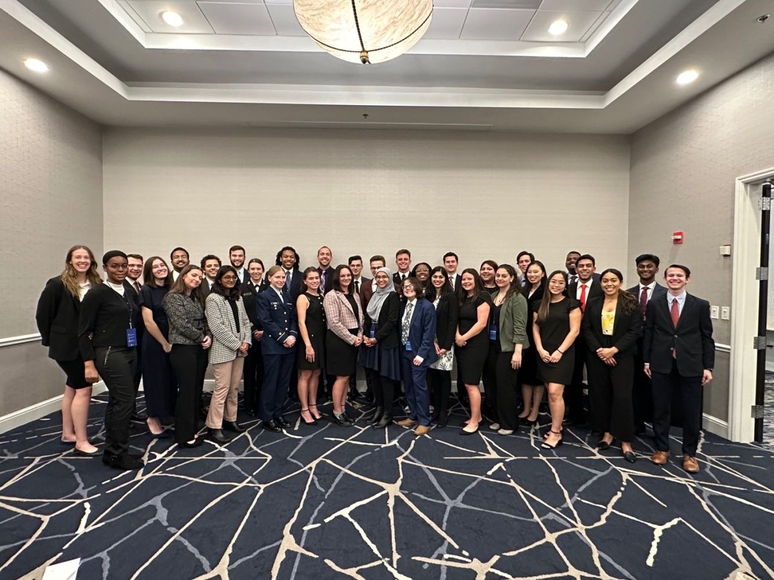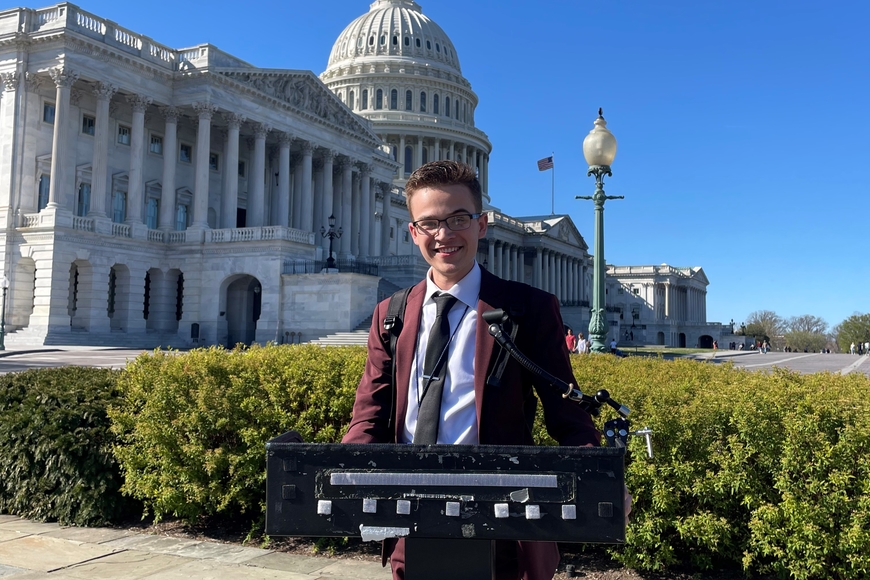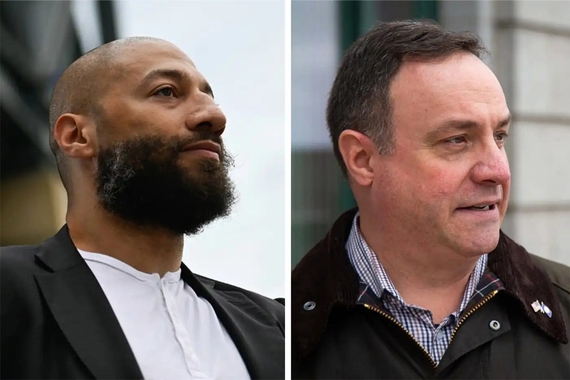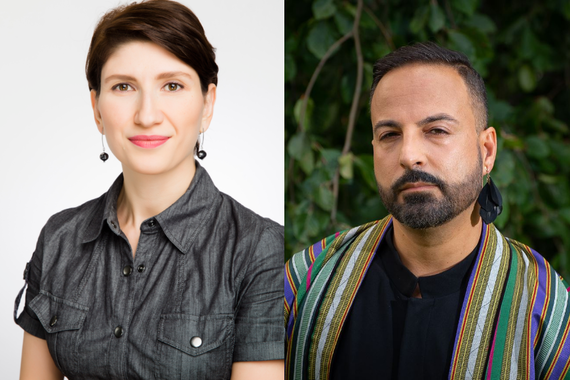Stage Wins Award During Presidential Fellowship
Dylan Stage is a senior undergraduate student majoring in economics, political science, and Spanish studies. This year, he was University of Minnesota’s Eiger Family Presidential Fellow for the Center for the Study of the Presidency and Congress's (CSPC) Presidential Fellows program. Stage recently returned from the program’s spring conference, where he was one of five Fellows to receive an award for their Fellowship paper.
Could you describe your experience with the Fellowship?
The Fellowship has been a tremendous experience, more than I imagined when I was first granted the opportunity. There are many components to it, but the genesis of the program is a 10-15 page research paper on a topic relating to the Presidency or Congress. Papers can be historical analyses or something to do with national security, domestic policy, or foreign policy; anything as long as the Executive and/or Legislative Branch ties into the topic. Fellows also meet virtually once a month for policy briefings, discussions, and simulations. Toward the end of the Fellowship, Fellows convene for a leadership and policy conference in Washington D.C. and write an op-ed eligible for publication.
Could you describe your paper and the award you received?
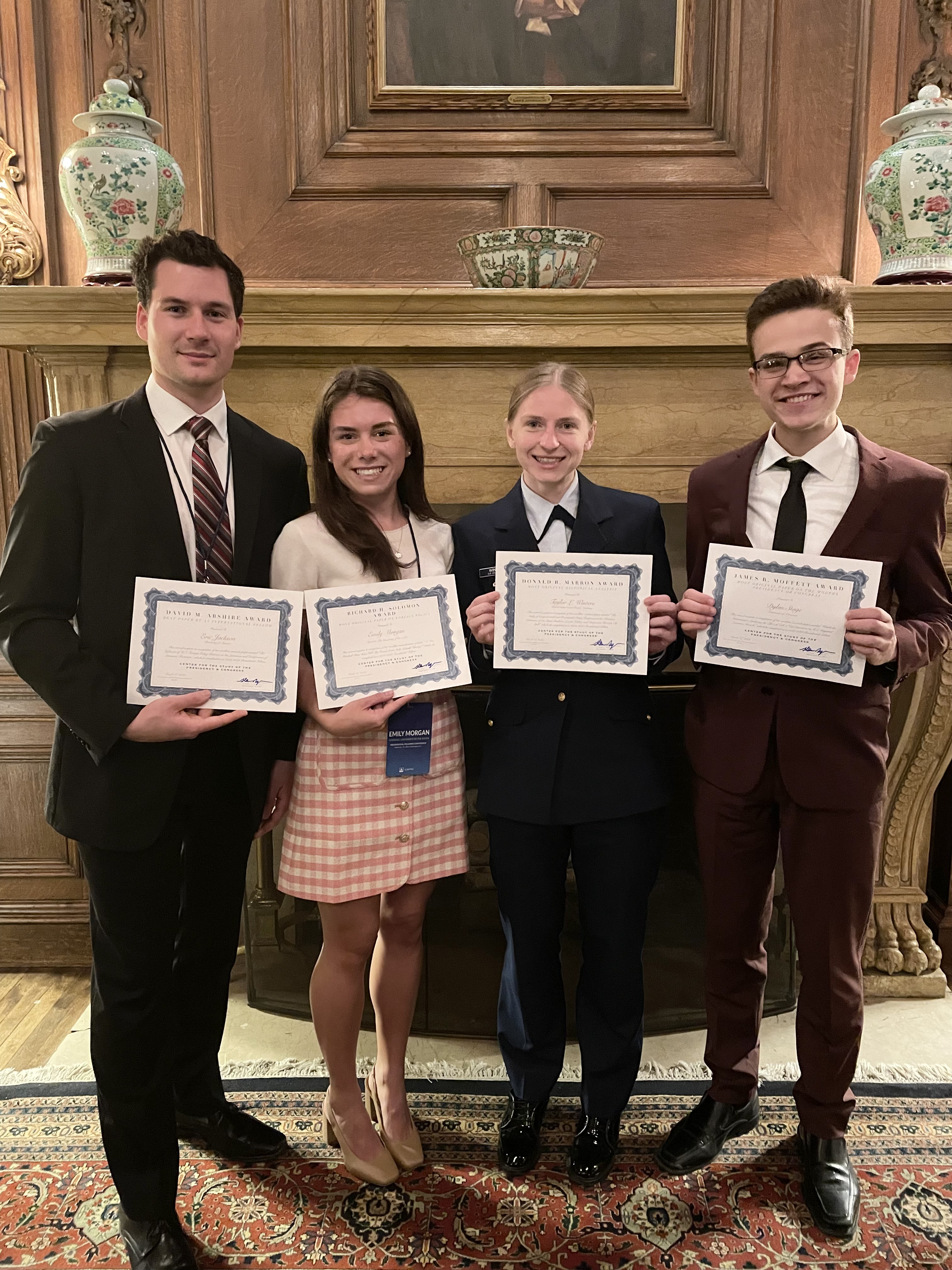
I wrote my paper on the EB-5 Immigrant Investment Visa Program, which is one of two U.S. “golden visas” that allows wealthy immigrants to gain citizenship in the U.S. in exchange for starting an investment project and hiring previously unemployed U.S. workers. I wanted to test whether EB-5 investors increased economic growth in all U.S. regions, some regions, or none at all. I figured that such an analysis could help guide the Presidency and Congress in more effectively allocating EB-5 investments in the case that effects are scattered. I ultimately found that, across three different indicators for economic growth (GDP, employment, and personal consumption), EB-5 investors positively contributed to economic growth in all eight U.S. regions. The EB-5 program has some interesting implications, since it is only available for wealthy immigrants, raising the question of whether more time and energy should be allocated in improving other naturalization processes.
Every year, five monetary awards, which differ each year, are given out to select Fellows for their papers. On the last day of the conference, I learned that my paper won the James R. Moffett Award for Most Original Paper on the Modern Presidency or Congress, the CSPC’s prize for Best Modern Presidency or Congress Paper.
Could you describe your experience at the spring conference?
I may be biased because the conference occurred over my birthday, but the week of the conference was one of my favorites to date. The CSPC conference takes place for five days in Washington D.C. and is a combination of sightseeing, speaker series, debates, research presentations, and dinner events.
What were the greatest takeaways from the spring conference?
My greatest takeaway from the conference was my nuanced ability to understand political precedent: how past actions by the President and Members of Congress have influenced today’s political decision-making. The other Fellows and I spent a lot of time attending seminars aimed at examining global policies and events, and discussing how they may play out in years to come.
What were your favorite parts of the spring conference?
If I had to choose, my favorite parts were the sightseeing ventures and dinner events. While sightseeing, I visited the Pentagon, U.S. Capitol, and Smithsonian, among other places. Tours were arranged at every site and employees from all three institutions told stories about how they got hired. That insight was super unique, making those visits one of my favorite parts. I really enjoyed the dinner events because that is where I grew close to the other Fellows— fantastic stories were told and lots of laughs were shared.
What were the greatest benefits of the program? Greatest takeaways?
The greatest benefit was definitely the research paper component. Fellows not only write a paper, but they can opt in to be matched with a mentor to guide their writing and research. My paper related to immigration, and I was matched with a Fragomen immigration lawyer, who deepened my understanding of the field and, in a sense, career-coached me. Another benefit of the program is the networking opportunities; I left with 20+ emails and 10+ business cards, as well as a few job offers.
What was your favorite part of the program?
My favorite part was getting to meet incredible students from all over the world—Harvard, Princeton, Stanford, Canada, Japan, Mexico. Although I learned from congressmen and policy experts, I feel as if I learned the most from my peers. They all brought so much passion, knowledge, and expertise to the table, and it was inspiring to hear from and be among them.
What advice would you give to other students interested in participating?
APPLY! The Fellowship is open to all students, regardless of their major. I especially encourage students interested in timely issues, such as the Russian invasion of Ukraine or the January 6th insurrection, to apply, since the Fellowship focuses on understanding recent phenomena. Also, speak with faculty in the political science department, or the department you study in, to brainstorm ideas for your paper’s topic; they will be your greatest asset as you get started.
